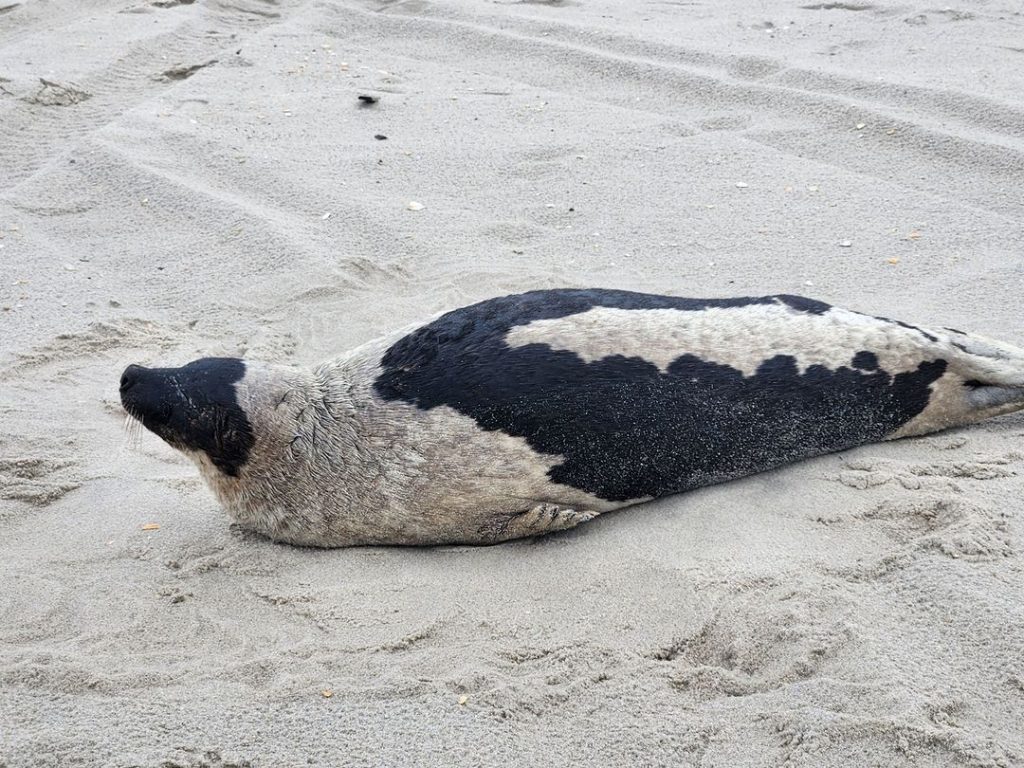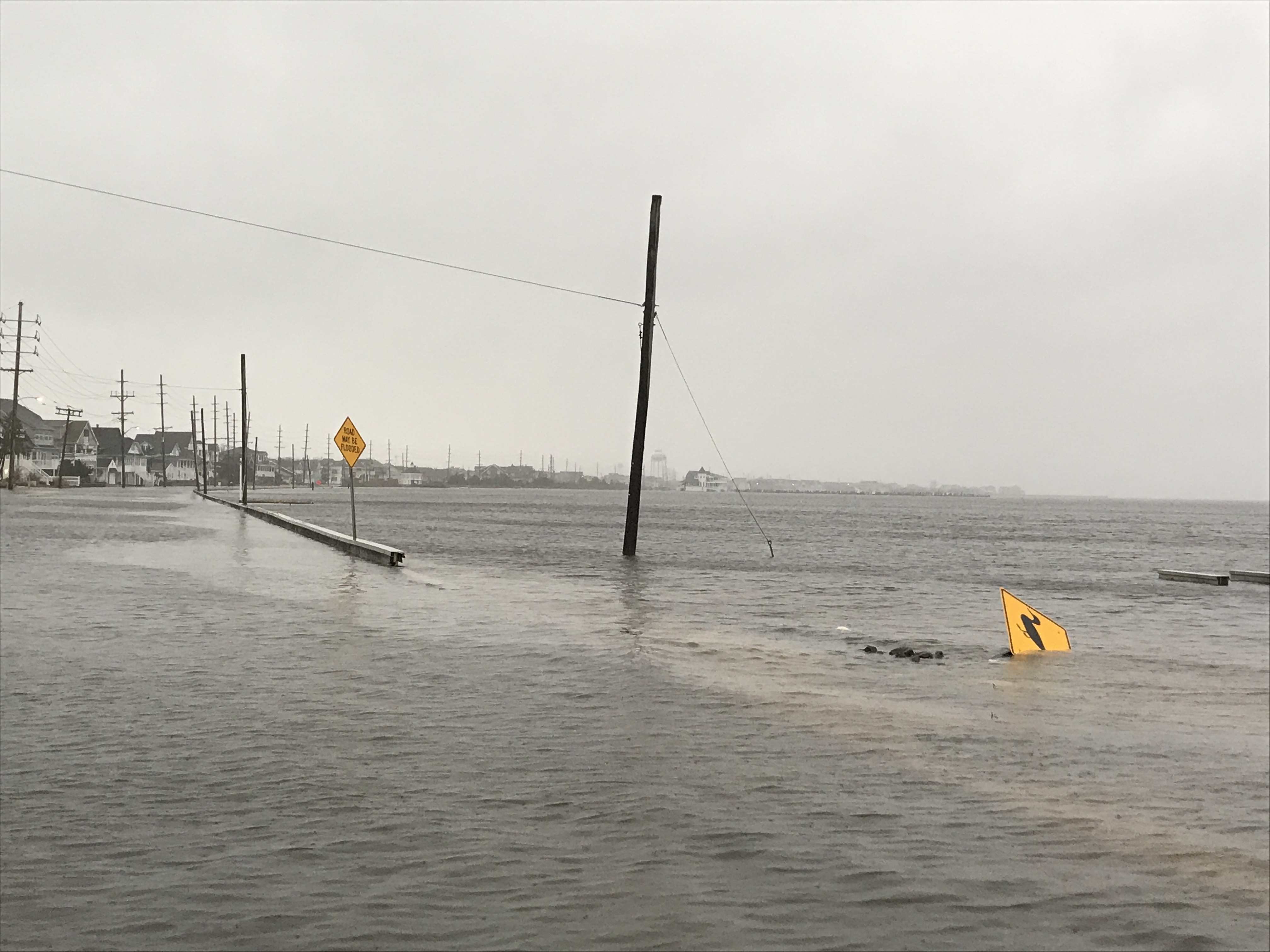
A 150-pound Arctic harp seal found on the beachin Lavallette, Feb. 2024. (Photo: Marine Mammal Stranding Center)
The 2024 winter season has brought a great amount of attention to the migratory seal population at the Jersey Shore, but recently in Lavallette, a less common visitor found himself in need of assistance on the beach.
According to the Marine Mammal Stranding Center, based in Brigantine, the center received a call about a very large, male seal laying on the beach in Lavallette. The Arctic harp seal’s behavior on the beach was observed for 24 hours by MMSC staff and certified Stranding Volunteers local to the area, who decided action needed to be taken after he was seen eating sand on the beach.
“Harp seals are one of our more fascinating winter visitors,” the center said in a statement.
The sand-consuming behavior may seem odd, but it is a unique trait that Arctic harp seals sometimes experience when stranded due to their usual activity in the wild. Since harp seals are an Arctic species that are used to consuming ice and snow for supplemental hydration, they sometimes can be seen eating sand when stranded and dehydrated.
The center said is was “supplying our new patient with piles of ice for his comfort.”
The seal weighed in at 150.8-pounds – much lager than the seal pups that are more commonly found along local beaches.
With the help of volunteers and the Lavallette Department of Public Works, the large seal was loaded into the Stranding truck and transported to MMSC on Saturday. Once admitted into the hospital, staff began supportive care via tube feeding to re-hydrate the seal, and started treatment to flush the sand out of his system with fluids and mineral oil.
“He is currently resting comfortably in Pen D of the ICU and has already started to eat fish on his own,” the center said.
Center staff said hard seals that show up in New Jersey are usually either juveniles or between two and three years old, but occasionally an adult will make an appearance.
“These seals are named for the dark harp-shaped pattern on their back that forms in their adult coat,” the center explained. “This species is most commonly found dwelling on the ice in the North Atlantic and Arctic oceans, but have been known to travel as far south as Virginia in the winter.”
The MMSC has had a busy season, and still has 11 rescued seals being treated in its facility despite having released several into the wild that have been successfully nursed back to health.
The center keeps records of their patients on their website and also accepts donations from the public, as they are a nonprofit organization.

Advertisement

Seaside Heights & Seaside Park
Seaside Heights School Board Seeking More Participation, Will Change Meeting Times

Police, Fire & Courts
Seaside Park Man, 68, Charged in Fatal Crash With Pedestrian

Ortley Beach & North Beaches
Lottery Ticket Worth $10K Sold at Ortley Beach Acme

Ortley Beach & North Beaches
Abandoned Private Island ‘Mansion’ in Barnegat Bay Poised for Demolition







